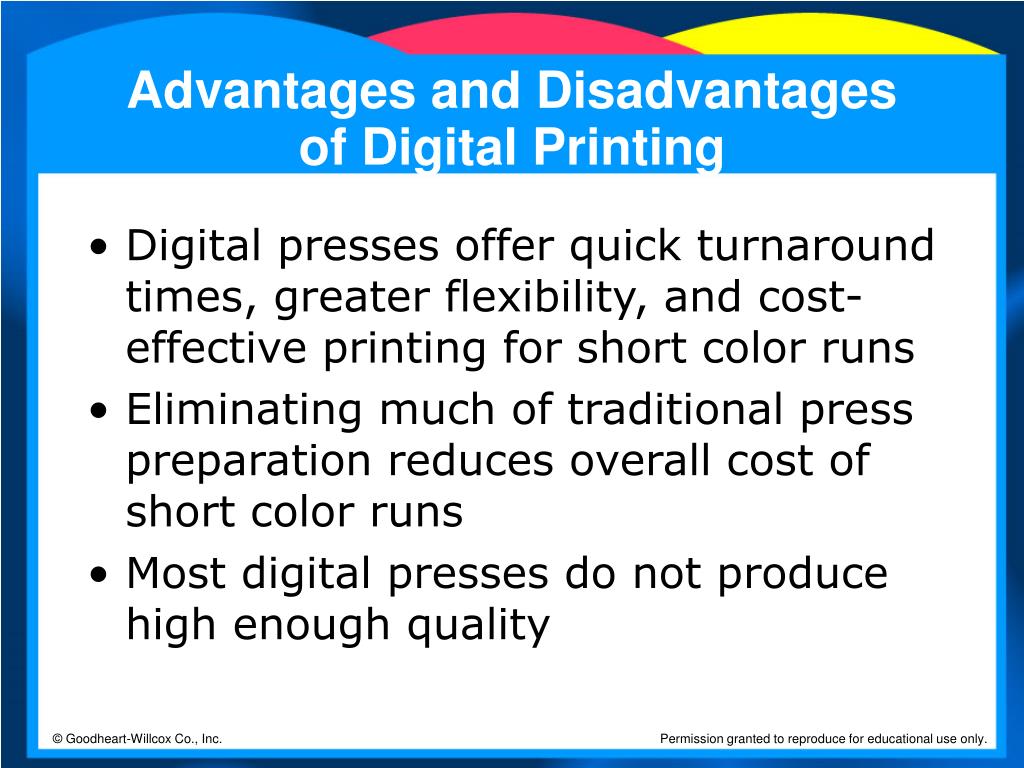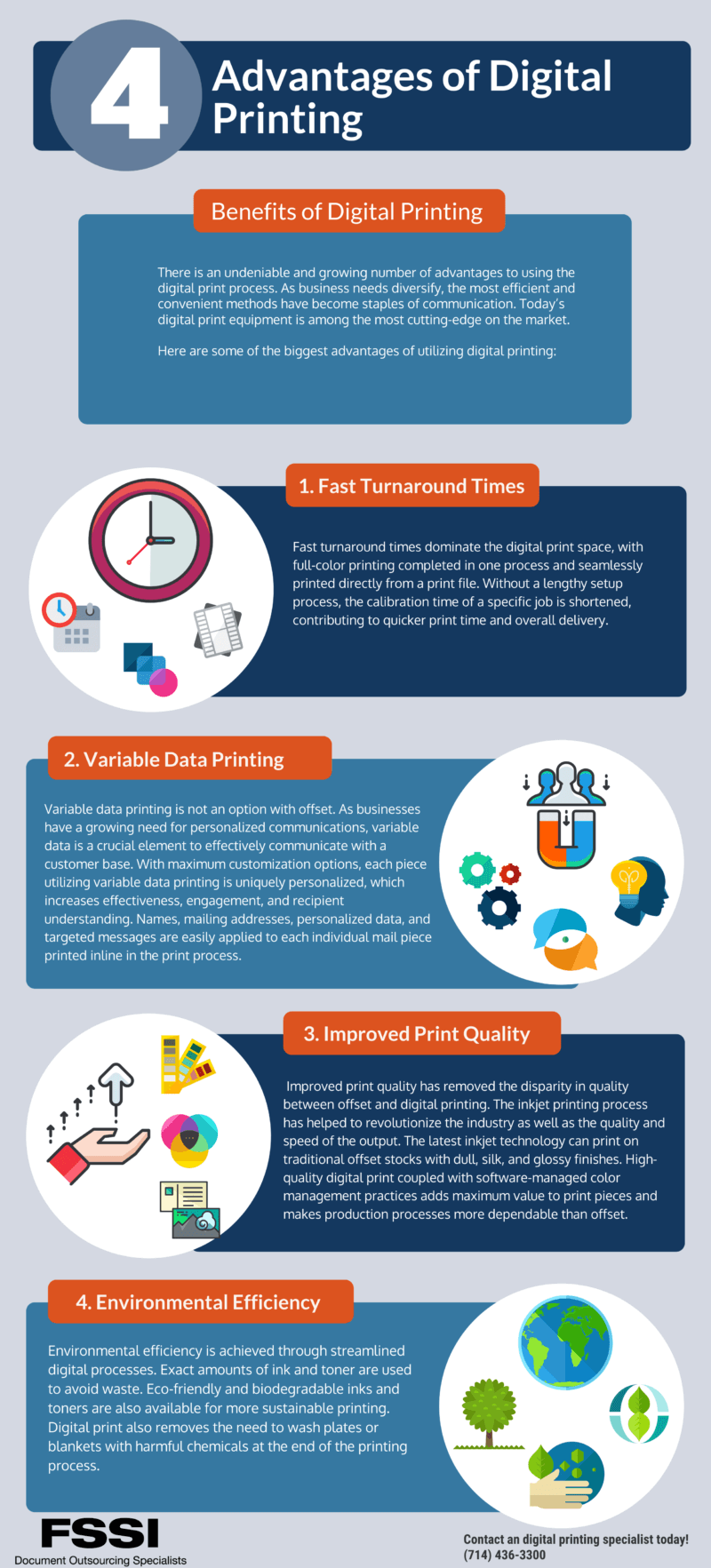The smart Trick of Digital Printing That Nobody is Talking About
The smart Trick of Digital Printing That Nobody is Talking About
Blog Article
All About Digital Printing
Table of ContentsUnknown Facts About Digital PrintingNot known Details About Digital Printing Digital Printing for DummiesThe 8-Minute Rule for Digital PrintingNot known Details About Digital Printing The Ultimate Guide To Digital Printing
Variable information printing, such as direct mail with personalized codes and addresses, is ideally suited for electronic printing. Digital quick printing just needs 4 steps of layout, evaluation, printing and binding to get whatever done. Digital fast printing has an unparalleled advantage: print on need.According to PMMI, electronic printing allows brands and makers to react rapidly to consumer needs while improving the supply chain, lowering warehousing price and waste, and taking pleasure in faster time to market. That all sounds wonderful, yet exactly how does this modern technology do all that? The significant differentiator of these technologies is that there are no set-up fees and no plates with digital printing.
Our Digital Printing Ideas
According to Wikipedia, the biggest difference in between electronic printing and standard techniques such as lithography, flexography, gravure, or letterpress - Digital Printing is that there is no need to change printing plates in digital printing, whereas in these analog printing approaches the plates are repeatedly changed. This results in quicker turn-around time and reduces expense when using electronic printing.
Digital printing is highly versatile, so it's easy to make modifications to the plan style swiftly. It all goes back to the plates.
With traditional printing approaches, short-run printing is simply not possible. Due to the fact that a terrific design can make or break your item, electronic printing continually creates high-grade, clear and colorful graphics each time.
Digital printing is the process of printing digital-based pictures directly onto a variety of media substrates. There is no requirement for a printing plate, unlike with balanced out printing. Digital documents such as PDFs or desktop computer posting documents can be sent straight to the electronic printing press to print theoretically, photo paper, canvas, fabric, synthetics, cardstock and other substrates.
Some Known Factual Statements About Digital Printing
According to PMMI, digital printing allows brands and suppliers to react rapidly to client demands while boosting the supply chain, decreasing warehousing price and waste, and appreciating faster time to market. That all noises excellent, yet how does this technology do all that? The major differentiator of these technologies is that there are no set up fees and no plates with electronic printing.
According to Wikipedia, the best difference in between electronic printing and traditional approaches such as lithography, flexography, gravure, or letterpress is that there is no need to change printing plates in digital printing, whereas in these he said analog printing techniques the plates are consistently replaced. This results in quicker turn-around time and decreases cost when using electronic printing.

The Best Guide To Digital Printing
With conventional printing methods, short-run printing is simply not feasible. Since a fantastic design can make or damage your product, digital printing consistently develops top quality, clear and vivid graphics each time.

According to PMMI, electronic printing enables brand names and makers to respond quickly to consumer needs while enhancing the supply chain, decreasing warehousing price and waste, and delighting in faster time to market. That all sounds great, yet just how does this innovation do all that? The significant weblink differentiator of these modern technologies is that there are no set-up fees and no plates with electronic printing.
Digital Printing Fundamentals Explained
According to Wikipedia, the best distinction in between digital printing and traditional techniques such as lithography, flexography, gravure, or letterpress is that there is no need to change printing plates in electronic printing, whereas in these analog printing approaches the plates are repeatedly changed. This results in quicker turnaround time and reduces price when using digital printing.
Quick manufacturing implies getting your item to market much faster. It additionally suggests it's simpler and faster to make adjustments later, when you change a dish, include a SKU, or create look at more info seasonal product packaging. Digital printing is very versatile, so it's very easy to make adjustments to the plan style rapidly. All of it returns to the plates.

The Best Guide To Digital Printing
Digital printing is the process of printing digital-based images straight onto a variety of media substratums. There is no demand for a printing plate, unlike with countered printing. Digital files such as PDFs or desktop computer posting files can be sent out straight to the electronic printing machine to publish on paper, image paper, canvas, fabric, synthetics, cardstock and other substratums.
Report this page